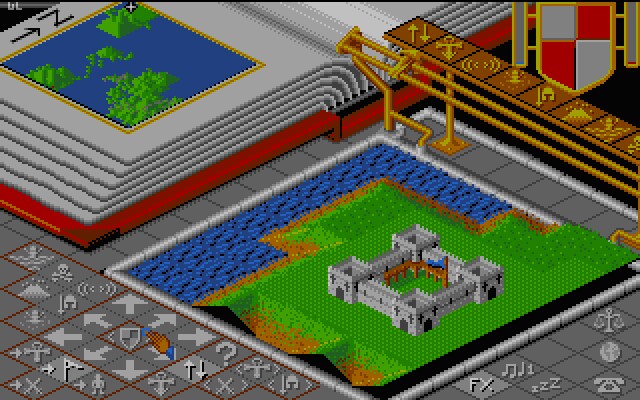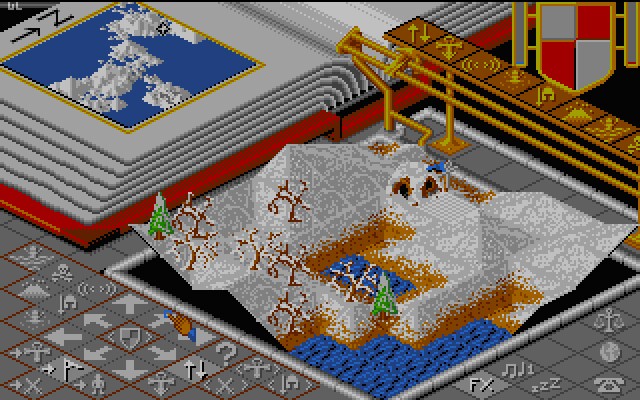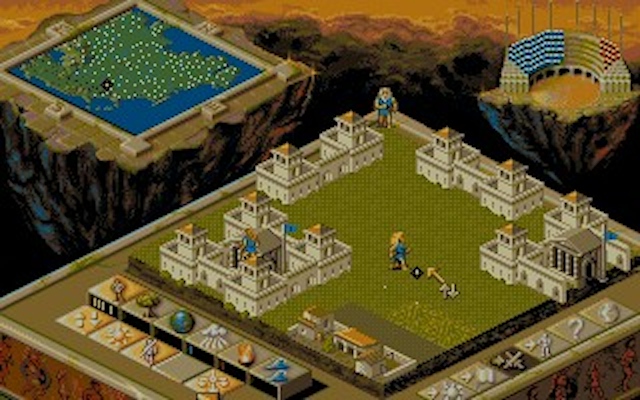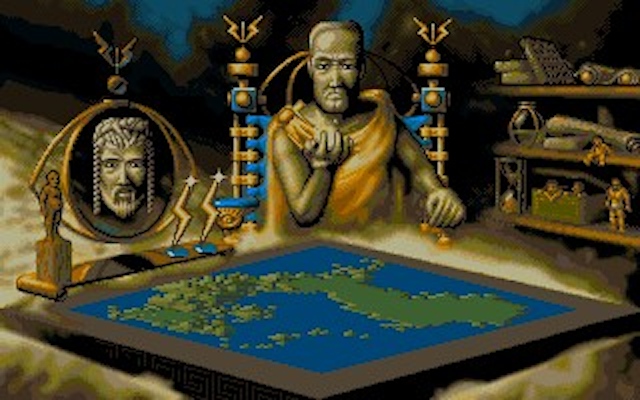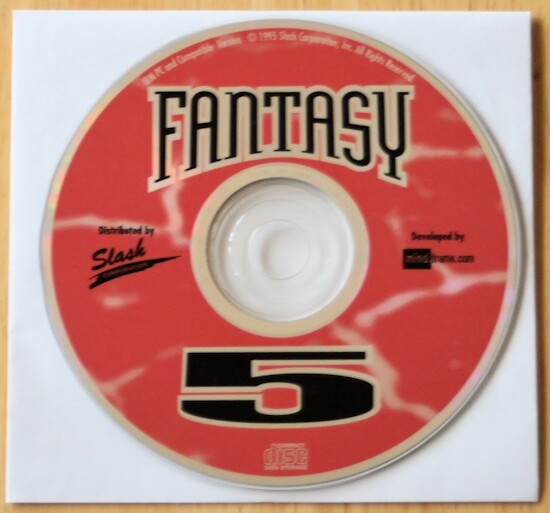

Actual Games
Populous I
|
The Games
Populous I
You play a god, gaming against other gods in a celestial game of conquest. To win, you must help your chosen people take over the world and wipe out the vermin who worship that other god.
Each god starts out with a single human, dumped into the middle of the wilderness. Sometimes there is inhabitable land in sight, sometimes not. To get a chance to win, you must change the landscape, creating flat land for your followers to build on. The more followers you have, the more powerful you will be, so take care of them. Build as fast as you can, because the other god is doing the same.
When you have enough followers, you can make the leader of your people into a hero. He will then go around the land you have built, literally taking strength from the people into himself, and working his way toward the enemy. When he gets there, he will engage in holy warfare upon your enemy's people. He will burn; he will kill. And he won't stop until they're all dead... or he is.
But you don't have to let your people have all the fun; the gods have other tools as well. You can drown your enemies one at a time with your land lowering powers, submerge their towns in swamps, or raise a volcano in the middle of their best farmland. Even better, you can flood the land and drain all the people who didn't build on high ground.
And when you win, you'll have 500 more worlds to conquer. A god's play is just never done.
Populous II
Populous II: Trials of the Olympian Gods is a great sequel to one of the most unique computer games ever made. Every aspect of the game was improved and various features added to make it a deeper game. In contrast to some unnamed god you play in the original Populous, in the sequel you actually are a god -- the son or daughter of Zeus, no less. Your task is to win a place for yourself in the pantheon by getting your worshippers to take on and beat the followers of the other gods. All in a day's work.
That Populous II isn't just a prettier Populous is obvious from the start: different points can be allocated to different elements to make your character more or less powerful in that area. For example, if you want your god to be a fire god (handy when fighting Neptune), you can give him/her more points in "fire" element. You will then get powerful fire effects (e.g. meteor shower and volcano) to wreck havoc on your opponents' followers much quicker than effects in other elements.
As in the first game, you must use supernatural powers to help your followers defeat the enemies. Your powers, as in Populous are what makes the game a lot of fun: in addition to old favorites such as tidal waves and volcano, there are many more creative ones such as baptismal fonts which turn enemy people into your followers (on the downside, these converts can change back into the enemies when they fall into it the second time!) The bigger the effect, the more mana you must have. Mana comes from your followers: the more followers you have, the more mana they give you. If you have enough mana, you can also summon famous Greek heroes such as Perseus and Theseus to help rally the people--- and burn down enemy houses in a hurry.
The great fun in Populous II is the little tricks you will learn as you play. If the enemy is on a holy pilgrimage, for example, rather than trying to kill them directly you can plant a swamp in their way and watch them march to their deaths. You can plant trees all throughout the enemy land and then throw a match to it and watch an entire enemy city burn in one giant conflagration. Planning, timing, and dexterity are all required for success, as well as quick anticipation of your enemy's strategy. Each of your opponent is introduced before the battle begins, and they do follow their legendary traits (e.g. if you fight Neptune, expect to see a lot of water effects). To round off this gem, there are random maps, multiplayer options, and practice mode where you can learn the game's mechanics. Even today, you won't likely find a better god game anywhere.
